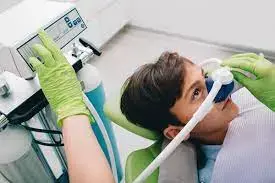- Home
- Medical news & Guidelines
- Anesthesiology
- Cardiology and CTVS
- Critical Care
- Dentistry
- Dermatology
- Diabetes and Endocrinology
- ENT
- Gastroenterology
- Medicine
- Nephrology
- Neurology
- Obstretics-Gynaecology
- Oncology
- Ophthalmology
- Orthopaedics
- Pediatrics-Neonatology
- Psychiatry
- Pulmonology
- Radiology
- Surgery
- Urology
- Laboratory Medicine
- Diet
- Nursing
- Paramedical
- Physiotherapy
- Health news
- Fact Check
- Bone Health Fact Check
- Brain Health Fact Check
- Cancer Related Fact Check
- Child Care Fact Check
- Dental and oral health fact check
- Diabetes and metabolic health fact check
- Diet and Nutrition Fact Check
- Eye and ENT Care Fact Check
- Fitness fact check
- Gut health fact check
- Heart health fact check
- Kidney health fact check
- Medical education fact check
- Men's health fact check
- Respiratory fact check
- Skin and hair care fact check
- Vaccine and Immunization fact check
- Women's health fact check
- AYUSH
- State News
- Andaman and Nicobar Islands
- Andhra Pradesh
- Arunachal Pradesh
- Assam
- Bihar
- Chandigarh
- Chattisgarh
- Dadra and Nagar Haveli
- Daman and Diu
- Delhi
- Goa
- Gujarat
- Haryana
- Himachal Pradesh
- Jammu & Kashmir
- Jharkhand
- Karnataka
- Kerala
- Ladakh
- Lakshadweep
- Madhya Pradesh
- Maharashtra
- Manipur
- Meghalaya
- Mizoram
- Nagaland
- Odisha
- Puducherry
- Punjab
- Rajasthan
- Sikkim
- Tamil Nadu
- Telangana
- Tripura
- Uttar Pradesh
- Uttrakhand
- West Bengal
- Medical Education
- Industry
Oral hydroxyzine safe option for oral sedation for kids during dental treatment: Study

Oral hydroxyzine could be safely used as oral sedation for children during dental treatment, according to a recent study published in the European Archives of Paediatric Dentistry.
Management of a child's anxiety early in their treatment is essential in dentistry. Sedative medications are used to overcome increased anxiety from previous appointments and to promote the cooperation of children during treatment. Hydroxyzine is currently prescribed to young patients as part of the first level of conscious sedation. The main objective was to evaluate the professional practice of oral hydroxyzine when prescribed for children presenting anxiety during dental treatment procedures performed by students and senior practitioners.
A retrospective study of dental records and questionnaires was conducted at the Dental Care Centre of the University Hospital of Rennes, France. Parameters related to the prescription of hydroxyzine in children were evaluated as potential predictors of the dental session success, with adjustments on potential confounders.
The Results of the study are
The therapeutic outcome was very encouraging with 78.3% of success during dental sessions under sedation with oral hydroxyzine. Anxiety levels before the dental procedure and the medication compliance of the child were the main predictors of success. On the other hand, lower age (< 6 years old) and longer treatments (such as pulpotomy) worsened the outcome.
Thus, the researchers concluded that careful analysis of the literature and results of this work showed the safety of hydroxyzine within the maximum dose authorized without adverse effects, compared to other molecules described and commonly used in dentistry. No adverse effects during dental procedure were noted. This allows for minimal sedation with efficiency for the great majority of pediatric treatment. This solution should be the first step in sedation to help practising clinicians.
Reference:
Oral sedation in dentistry: evaluation of the professional practice of oral hydroxyzine in the University Hospital of Rennes, France by A. Pouliquen, E. Boye et al published in the European Archives of Paediatric Dentistry
https://link.springer.com/article/10.1007/s40368-021-00620-7
Dr. Shravani Dali has completed her BDS from Pravara institute of medical sciences, loni. Following which she extensively worked in the healthcare sector for 2+ years. She has been actively involved in writing blogs in field of health and wellness. Currently she is pursuing her Masters of public health-health administration from Tata institute of social sciences. She can be contacted at editorial@medicaldialogues.in.
Dr Kamal Kant Kohli-MBBS, DTCD- a chest specialist with more than 30 years of practice and a flair for writing clinical articles, Dr Kamal Kant Kohli joined Medical Dialogues as a Chief Editor of Medical News. Besides writing articles, as an editor, he proofreads and verifies all the medical content published on Medical Dialogues including those coming from journals, studies,medical conferences,guidelines etc. Email: drkohli@medicaldialogues.in. Contact no. 011-43720751


